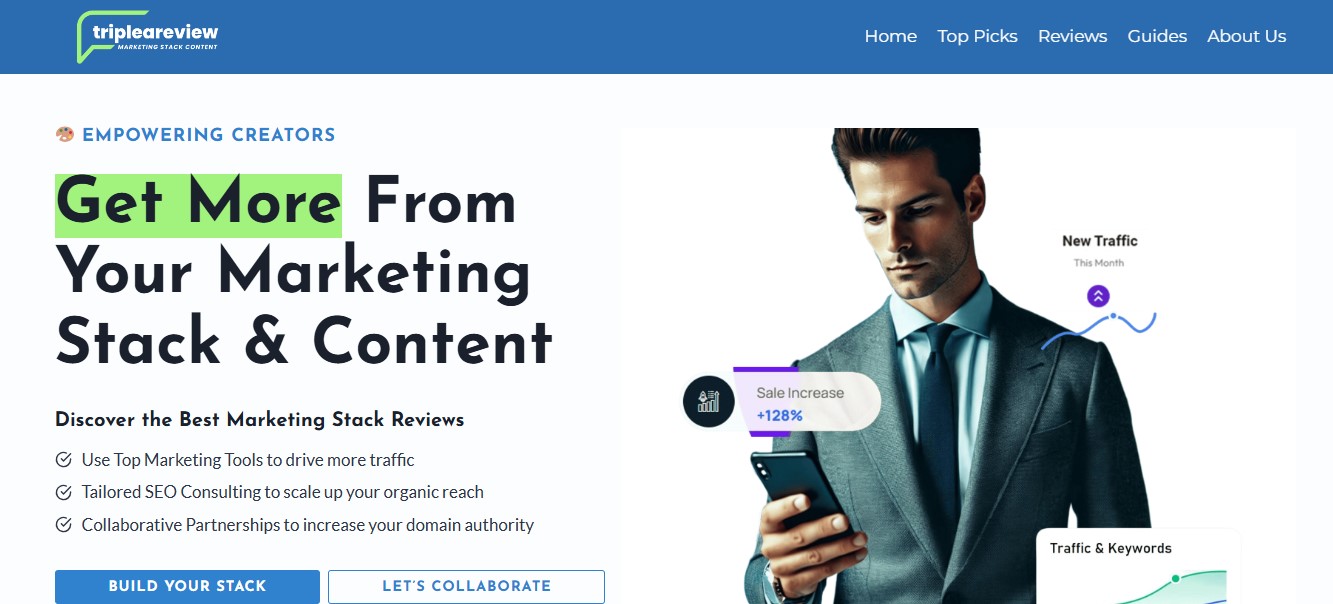Grow Your Business Through Effective Referral Marketing

Strong 8k brings an ultra-HD IPTV experience to your living room and your pocket.
In a world flooded with advertisements and countless options, standing out to potential customers is a constant challenge for businesses of all sizes. Traditional marketing methods can be costly and often don’t deliver the kind of trust and engagement needed to build a loyal customer base. Referral marketing offers a compelling alternative—leveraging the power of your existing customers’ trust and networks to grow your business organically.
This article explores what referral marketing is, why it works, and how you can build an effective referral program that drives sustainable business growth.
What is Referral Marketing?
Referral marketing is a strategy where businesses encourage their current customers to recommend their products or services to others—friends, family members, colleagues, or social media followers. Unlike paid advertising or cold outreach, referral marketing capitalizes on personal recommendations, which carry far more weight and trust.
Instead of pushing a message to a broad audience, referral marketing relies on the influence of one satisfied customer to introduce new customers. This form of word-of-mouth marketing is highly effective because people tend to trust recommendations from those they know and respect more than any commercial message.
Why Referral Marketing Works So Well
There are several reasons referral marketing outperforms many other marketing approaches:
1. Trust and Credibility
People inherently trust recommendations from people they know—friends, family, or colleagues—more than ads. According to Nielsen, 92% of consumers trust referrals from people they know above all other forms of advertising. This trust leads to higher conversion rates because referred leads start with a positive impression of your business.
2. Cost Efficiency
Referral marketing is one of the most cost-effective marketing strategies. Instead of spending large budgets on ads, you reward existing customers for bringing in new business. Since the program targets warm leads generated through trusted relationships, your marketing dollars stretch much further.
3. Higher Conversion Rates
Referrals generate high-quality leads. Since the referral comes from a trusted source, the new customer is pre-qualified and more likely to convert. Research shows referred customers have a 37% higher retention rate and tend to spend 25% more than non-referred customers.
4. Increased Customer Loyalty
Referral programs do more than just attract new customers—they strengthen bonds with your existing customers. By incentivizing referrals, you create a sense of partnership and reward, encouraging customers to engage more deeply with your brand.
5. Organic Growth and Scalability
Referral marketing creates a positive feedback loop—happy customers refer others, who then become happy customers and refer more people. This organic growth is highly scalable and sustainable, building a strong community around your brand.
How to Build an Effective Referral Program
Launching a successful referral marketing program involves careful planning and execution. Here are essential steps to ensure your program delivers results:
Step 1: Identify Your Brand Advocates
Not all customers are equally likely to refer your business. Identify your most loyal and satisfied customers who would be enthusiastic about recommending you. Look at purchase frequency, engagement levels, and feedback to find these advocates.
You can use surveys, customer reviews, or even direct outreach to find people who love your product or service. These individuals are your starting point for building a referral program.
Step 2: Design a Simple and User-Friendly Referral Process
Simplicity is key. If your referral process is complicated or time-consuming, customers won’t bother. Make it easy for customers to share your business:
- Provide unique referral links or codes.
- Offer one-click sharing options for social media and email.
- Integrate referral features directly into your website or app.
- The easier the process, the more referrals you will get.
Step 3: Offer Attractive and Meaningful Incentives
Incentives motivate customers to take action. Your referral rewards should be valuable enough to encourage sharing but sustainable for your business. Common incentives include:
- Discounts or coupons for both referrer and referee.
- Free products or upgrades.
- Exclusive access to events or content.
- Loyalty points or cash rewards.
Consider a double-sided incentive structure, rewarding both the person who refers and the new customer. This creates win-win motivation.
Step 4: Promote Your Referral Program Effectively
Customers won’t refer if they don’t know about your program. Promote it through multiple channels:
- Email campaigns targeting your loyal customers.
- Website banners or pop-ups.
- Social media posts and ads.
- Packaging inserts or receipts.
- Direct communication from customer service.
Make the program visible and remind customers regularly without being intrusive.
Step 5: Track Performance and Optimize Continuously
Use analytics tools to monitor your referral program’s effectiveness. Track metrics like:
- Number of referrals.
- Conversion rates of referred leads.
- Customer acquisition cost.
- Engagement and redemption rates.
Use this data to identify bottlenecks or drop-off points and tweak your program accordingly. For example, if customers drop off before sharing, simplify the process further. If rewards aren’t enticing enough, consider increasing the incentive.
Common Referral Marketing Models
There are several referral marketing models you can use depending on your business type and customer base:
1. Direct Referral Rewards
Customers get rewarded directly for each new customer they refer who makes a purchase or signs up. This straightforward approach is easy to understand and implement.
2. Tiered Rewards
This model rewards customers more as they refer more people, encouraging continuous advocacy. For example, a customer might earn a $10 discount for the first referral, $20 for the second, and so on.
3. Contest or Sweepstakes
Customers enter a contest or sweepstakes for each referral. This gamifies the experience and can drive high engagement, especially in social or B2C settings.
4. Loyalty Points System
Referrals earn customers loyalty points that they can redeem for products, discounts, or perks. This ties referrals to your broader customer loyalty program.
Examples of Successful Referral Marketing Programs
Understanding how top companies leverage referral marketing can inspire your own program design:
Dropbox
Dropbox famously grew its user base from 100,000 to 4 million users in just 15 months by offering extra free storage space for every friend a user referred. This simple, valuable incentive encouraged users to spread the word organically.
Airbnb
Airbnb’s referral program gives both the referrer and the referred friend travel credits. This double-sided reward system encouraged users to invite their friends to try the platform, fueling rapid global expansion.
Tesla
Tesla owners who referred new buyers received rewards like invitations to exclusive events or discounts on accessories. This helped Tesla tap into a passionate community of brand advocates.
Challenges and How to Overcome Them
While referral marketing offers numerous benefits, it’s not without challenges:
Getting Customers to Participate
Many customers won’t refer simply because they forget or aren’t motivated. Frequent reminders, clear communication, and appealing incentives are key to overcoming this.
Tracking Referrals Accurately
Without the right technology, tracking who referred whom and attributing rewards can get complicated. Invest in referral software or platforms that automate tracking and reporting.
Avoiding Fraud or Abuse
Some customers might try to game the system by creating fake accounts or abusing incentives. Implement safeguards like verifying new customers and monitoring suspicious activity.
Tips for Maximizing Referral Marketing Success
- Deliver Exceptional Customer Experience: Happy customers are naturally more likely to refer.
- Encourage Social Sharing: Make sharing on social media seamless to amplify reach.
- Personalize Referral Requests: Tailored messages perform better than generic asks.
- Leverage Influencers and Partners: Collaborate with influencers or partners who can refer on your behalf.
- Celebrate and Recognize Referrers: Publicly acknowledge top advocates to motivate others.
Bonus Tool Recommendation
If you’re running a Shopify store or any hosted ecommerce platform, you can skip the heavy lifting and launch a best-in-class referral or affiliate program in minutes with ReferralCandy. It handles link generation, reward payouts, and analytics for you, so you get automatic referrals without writing a single line of code.
Conclusion
Referral marketing is a powerful and cost-effective strategy to grow your business by leveraging the trust and enthusiasm of your existing customers. By designing a simple, rewarding, and well-promoted referral program, you can generate high-quality leads, increase customer loyalty, and drive long-term growth.
Start by identifying your best customers, make referring easy, offer meaningful incentives, promote your program widely, and continuously optimize based on performance data. Whether you’re a startup or an established company, referral marketing can become your secret weapon to sustainable business growth.
Note: IndiBlogHub features both user-submitted and editorial content. We do not verify third-party contributions. Read our Disclaimer and Privacy Policyfor details.






